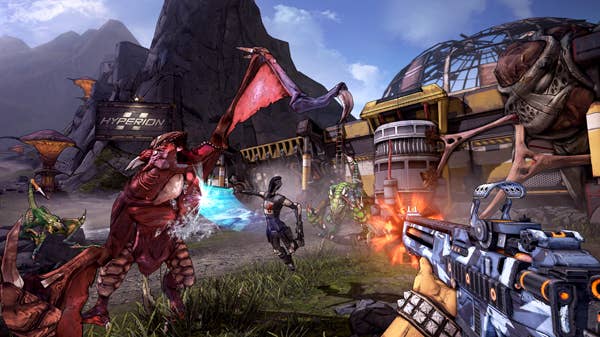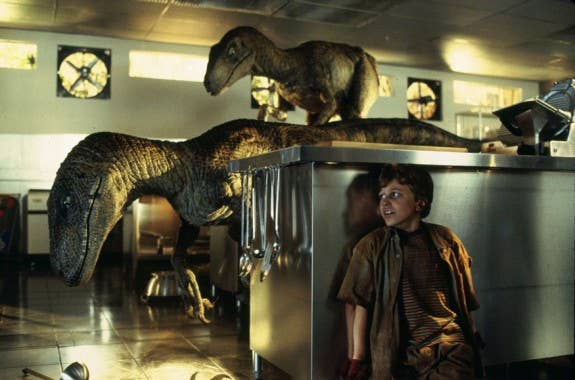Games and Storytelling: Incorporating Fan Feedback
Mass Effect 3's controversy may be extreme, but fan feedback on narrative can be quite useful
Gaming has been called the creative medium that asks the most out of its fans and it's difficult to argue with that. Movies, TV shows and books do not have a "failure state." It stems from the interactive nature of video games - if there is no success or defeat, the game's merely a toy. Similarly, players become invested in these games, not just because their actions dictate whether the hero succeeds or fails, but also because they are vital cogs making sure the story moves forward.
Nowadays, not only are players wrapped up in engaging, fully-voiced narratives that can rival the quality of film, they're also able to give tangible feedback to developers.
GamesIndustry International discussed the push and pull between creators and fans with Paul Helquist, Creative Director of Borderlands 2, and Dan Connors, CEO of Telltale. In particular, we focused on game stories to find out how the fans have helped to shape the stories in the games they've made.
Helquist noted that his team definitely looked at feedback from reaction to the story of the first Borderlands. "I think the majority of the feedback was that it was too light; there was a high level concept in the game, going after the Vault, but it wasn't very well developed. That was the key critique that we took out of the first game," he said.
For the guys at Gearbox, the DLC helped them try out different story concepts. "We wanted to explore how to tell stories and have them be interesting but not intrusive," Helquist continued. "I think the thing we were able to do in The Zombie Island of Dr. Ned and The Secret Armory of General Knoxx is make the story happen during the missions. You could come back to where you got the mission and Claptrap is tied up - we're doing that more of thing in the sequel."

"People want to have the vocal performances as well - we realized that. They want that audio content to draw them into the world, so we explored that in the DLC and it worked well on a pretty outlandish level."
For Telltale Games, user feedback has been a key part of their games since the beginning. "Early on, we realized the power of user feedback, that it's the most important thing," said Connors. "Our writers were able to engage with customers and hear what they like and didn't like - add more about a character, tweak a storyline. For instance, in Sam & Max we were hoping the Soda Poppers would be characters people would like, but they didn't. We ended up killing them and having them be the bosses in Hell. It's the live development we live in that I feel lets us run with these sorts of tangents."
"Early on, we realized the power of user feedback, that it's the most important thing"
Dan Connors
Ironically, Telltale wasn't thinking about user feedback when it made its foray into episodic gaming.
"I really don't think we were focusing on that as a benefit when we started," said Connors. "When the transition to digital content allowed us to make things more bite-sized, that really was our motivation for episodic content. It allowed us to distribute multiple episodes, more like TV. We felt like story was the hook that would keep users engaged. This idea of live development was with us until Jurassic Park, which released all episodes at once. I think it's something that we've benefited from."
While story has always been important at Telltale (as evidenced in the name of the studio) the original Borderlands had a somewhat muted story from Gearbox, but Helquist indicates there will be "way more emphasis" on the story for the sequel, thanks in part to the positive reception to what story was in the original.
"The storyline [for Borderlands 1] was a very high-level thing: 'Gotta go find the Vault.' You're collecting the keys to the Vault - you could easily forget that until it comes together at the end," said Helquist. "This time, it's sending you off in different places and it's more integrated and more involved than the first game."
One thing that isn't going to change is the mixture of odd humor during side missions and relatively serious attitude during story missions. "This has been a big balance during development. Part of our storytelling aesthetic is this dark satirical humor, especially in our side mission content," admitted Helquist. "How serious should it be versus comedic and zany? The plot content is serious but the side content is pretty out there. If you're looking for a space opera you should do the main content whereas if you want something silly it's the side stuff."
The plot of Borderlands 2 will be fully realized when the game ships, whereas the narrative in the upcoming Walking Dead is still up in the air, even though Telltale just release the first episode. It's a wildly different approach.
"As long as we've been doing it, we've been focusing on episode 1 and seeing where it lands and then focusing on the next," detailed Connors. "We start out with a loose outline, the basic character arcs and then we break it down into episodes. We look to get the first show out there, establishing things, and we have a decent amount of details for episode 2, but for after that it's a really rough outline. Basically, it's a loose overview of where we wanted to go, but it doesn't get worked out until the writer delivers the script."
A recent Telltale game was Jurassic Park, which was something of a departure for the company, and the developer learned a lot about itself and its customers from the experience.

"The mission with Jurassic Park was to capture the dramatic tension of the movie," said Connors. "It was our first real non-comedy game and it was based around dinosaurs. We also wanted to engage [the player] in the action, so the many fans of the franchise could be immersed in a world full of dinosaurs and feel like they were being chased, and there were good moments in that, I think. The amount of freedom and exploration... some people liked it and enough people disliked it, but we really went for dramatic pacing in our game and Jurassic Park helped us get to Walking Dead."
"I think with Walking Dead, we knew what we could do from Jurassic Park that was positive and negative," he noted. "We focused on control that let the users feel like they could explore the universe more freely. I liked the timed dialog system in Jurassic Park and we implemented that in Walking Dead and that helped with pacing, and now players always feel engaged because they have to make quick decisions. It's about the mechanics of exploring the world."
Connors admitted that not everything in Jurassic Park met his expectations. "If you're going to do action sequences, you have to nail them. You can't have assets where it doesn't work," he said. "Trying to recreate one of the greatest movies of all time, putting dinosaurs in the game... we've never done anything like that."
Walking Dead's development, on the other hand, has been more in line with Telltale's style. "By contrast, investing in a story that's more like a comic book allows us to be expressive and we didn't have to get every expression completely realistic - it lets us be more creative."
"It also didn't help for us instead of being episodic to have a Christmas launch in the same month as Skyrim. It put expectations on it," Connors said of Jurassic Park.
Stay tuned for part two where we offer a more indie take on storytelling - along with more details on Walking Dead and Borderlands 2.









